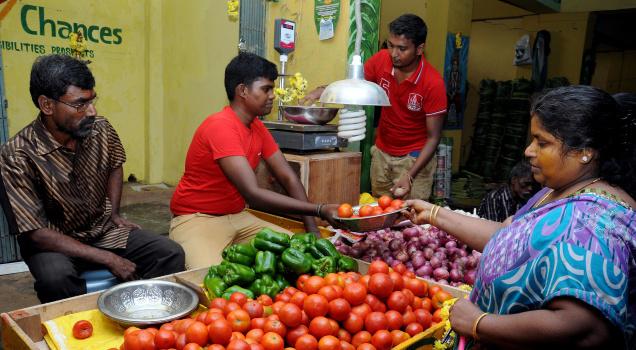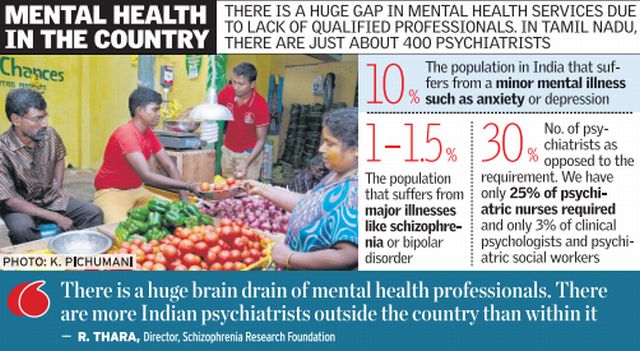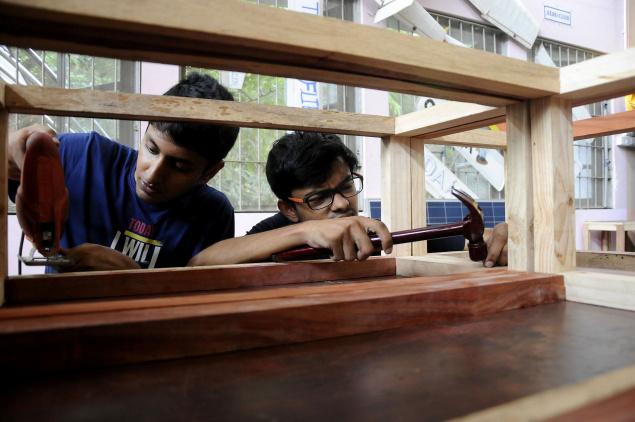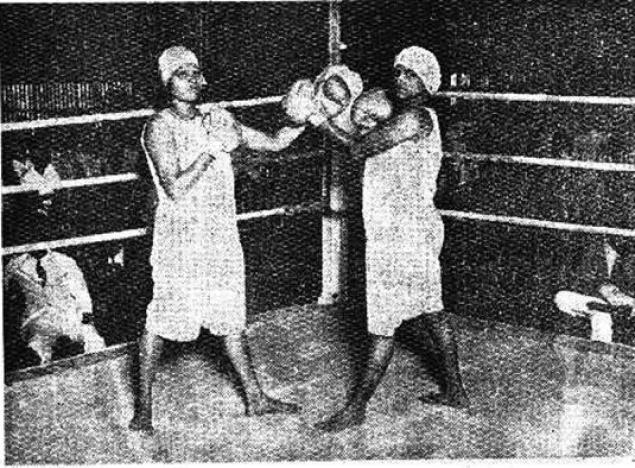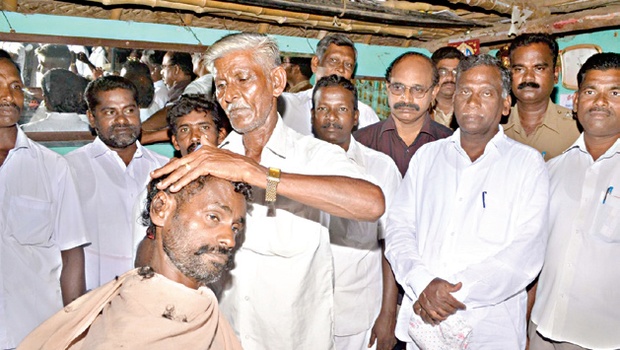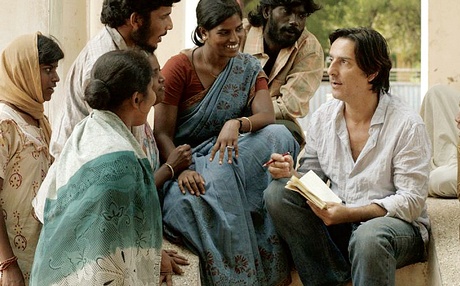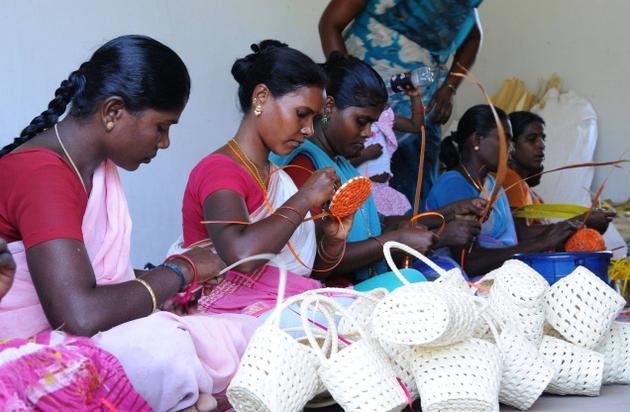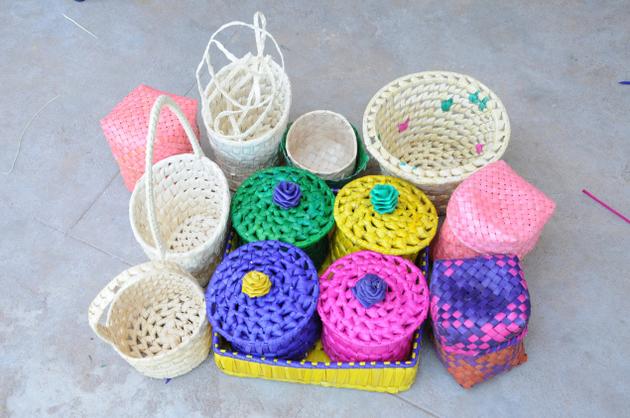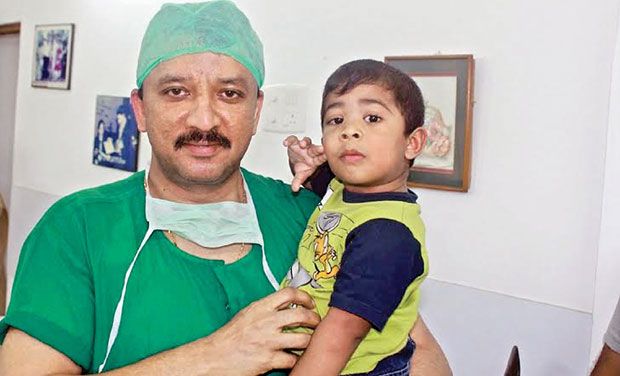Chennai has always been known for its automobile and IT industry. The cultural capital of the south sees a presence of a major part of India’s automobile industry. In terms of IT export, Chennai is ranked second in India. It is often seen as the secondary financial hub following Mumbai. One of the fastest growing cities in the world, Chennai is home to more than 20 Indian companies that have a net worth of more than USD 1 billion.
In terms of legacy startups, Chennai has given us Bharatmatrimony. Founded in 1997 by Murugavel Janakiraman, who later met his wife through his own matrimony site, the company has 130 offices in India, with offices in Dubai, Sri Lanka, United States and Malaysia to cater to its customers beyond India. BharatMatrimony is one of India’s largest and most trusted matrimony brands. They were the pioneers in matchmaking and have been early birds in the mobile space with their matchmaking apps on almost all major platforms.
According to software products thinktank iSpirt, at least five Indian product companies have crossed or are on track for a $1 billion valuation, and the list includes one from Chennai. Can you guess the name?
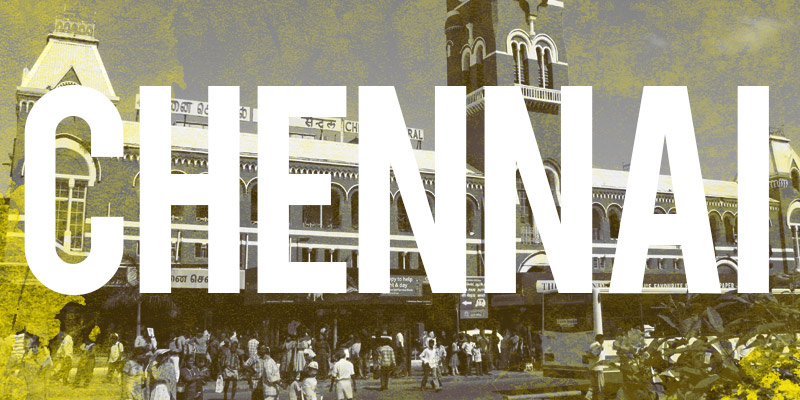
The startup that is currently making waves and is an inspiration for many product companies emerging out of Chennai is Girish Mathrubootham co-founded Freshdesk.Girish is not prominently visible in startup meetings but does a lot of activity that directly benefit startups, such as investments and mentoring. He even gives space to startups to work as part of his office space. The provider of SaaS-based customer support platform for enterprises, has secured $44 million in funding till date which includes a $31 million in a Series D round of funding by investors Tiger Global Management, Accel Partners and Google Capital.
And talking of legacy and inspiration for startups, how can one miss Sridhar Vembu co-founded Zoho that takes on two giants simultaneously – Google and Salesforce.com. First, it speaks volumes on the founders behind it and the ability of the organization to move at the speed of its market or stay ahead of its competition. Zoho was born in the Valley but its developer team is in India. And if you couldn’t guess, the answer to the question mentioned in the beginning of the article is Zoho.
If you begin talking about Vembu, you need to stop somewhere. His incredible energy and focus to build a world-class product company and focus only on that, makes him a rare breed among product entrepreneurs. His guts just overawe you. He has built a unique bootstrapped company and has turned down acquisition overtures from Salesforce.com. This story has acquired some sort of a legendary status in itself as an anecdotal reference to Sridhar’s ability to shrug off naysayers and believe in himself.
Another startup from Chennai that has captured global attention is Indix. Founded by Sanjay Parthasarathy and Sridhar Venkatesh in 2012, Indix is a big data startup that is building a catalogue of over 1 billion consumer products from all over the world. Their intention is to help brands to be able to compare their prices, thereby assisting them to make crucial business decisions. In simple terms Indix is personalizing the results for product search that you get if you google it, all the while itself being neutral. Indix already has a database of over 200 million products and plans to scale to over 1 billion listings in the next two years. Till date, the startup has received four rounds of funding totaling $15.9 million.
_______________________________________________________________________________
Chennaites, listen up. TechSparks, the flagship event of YourStory is coming to your city this Friday (September 19). Get ready to listen and engage with Sridhar Venkatesh, Co-founder, Indix. Get your tickets here.
________________________________________________________________________________
First let us take a look at a few older startups which can now be termed upstarts.
OrangeScape – A company with two platform software. Visual PaaS – a cloud application development platform and KiSSFLOW a workflow-as-a-Service platform. OrangeScape has marque enterprise customers include the likes of Unilever, Citibank, Pfizer, AstraZeneca and its KiSSFLOW is the #1 in its category and used by 9000+ companies across 108 countries.
BankBazaar.com – Started by Adhil Shetty, Arjun Shetty and Rati Rajkumar, this online financial marketplace lets you search across all top financial institutions of India and get instant customized rate quotes on loans and insurance products. They raised Rs.80 crores in a funding round led by Sequoia Capital and existing investor Walden International in early 2014. While most online financial portals operate on a referral mode where they capture phone numbers and sell them to different banks and agents, BankBazaar.com offers real time approval for loan applications. Presently, they offer services of nine banks. They also have a mobile product accessible on smartphones.
Chargebee – Founded in June 2011 by Krish Subramanian, KP Saravanan, Thiyagarajan T and Rajaraman S, ChargeBee is primarily a subscription and recurring billing solutions for businesses across different industries. With its plug-and-play capability, businesses can automate billing, invoicing and leverage transactional emails to improve communication with their customers. The company had raised its first round of $350k from private investors in December, 2012. Earlier this year it raised another $800k from Accel Partners.
Stayzilla – In 2006, Yogendra along with his backbencher friends at college, Sachit Singhi and Rupal Surana, believed that the fragmented ‘stay’ market could be brought online and made structured. It was 2005-06, when India was going through the Internet revolution but still wasn’t quite internet savvy as today. They started under the name of Inasra.com but then they rebranded it to StayZilla – stay in every ‘zilla’ (district) — in 2010. As of today, it has more than 15,000 stays listed in a network of more than1100 cities in India. They clock more than 500 bookings per day. The company is funded by Matrix Partners prior to which it had raised its angel round from IAN.
vakilsearch – Founded by Hrishikesh Datar in 2010, vakilsearch is a web-portal that provides legal services on the internet. Services provided by vakilsearch includes, legal advice support, documentation services including will, rental agreements, non-disclosure agreements, incorporation of companies, Limited liability partnership firms, intellectual property registration and advice, tax filing and accounts related services. The information needed for creation of basic agreements are collected through simple questionnaire online and supplemented through telephonic calls, if needed and the document is delivered through postal services.
Caratlane – Founded in 2007, the portal has helped customers go beyond local family jewellers for their needs and tap ‘the world’s largest collection’ of solitaire gems and innovative contemporary designs via the Net. Earlier, Tata’s Tanishq had transformed India’s jewel market via a trusted name in branded jewels. CaratLane sources directly from vendors, eliminating inventory and real estate costs. It educates customers about jewellery designs, hires gemologists in the sales team, forms partnerships with banks for outreach, and targets male as well as female shoppers.
Contus – Contus is a leading mobile app development company that fulfills web and mobile app requirements. Apptha, the powerful marketplace of Contus is a storehouse of all themes and extension needs for different platforms like Magento, WordPress, and Joomla. Mobecommerce of Contus is another notable marketplace delivering mobile-based products cost-effectively. Founded in 2008, Contus serves more than 40 countries all around the globe.
Unmetric – Founded by Lakshmanan (Lux) Narayan, Kumar Krishnasami and Joe Varghese, Unmetric works with leading brands and agencies across the world and provides them competitive intelligence 10,000+ global brands across 30 industry sectors. Brands use this intelligence to then comprehend and calibrate their social media efforts. The company has worked with global brands like Subway and Toyota.
Now, let us look at 9 promising startups from Chennai that you should watch out for. These are in no particular order and the list has been curated based on the team, innovation, market size and their current execution stage.
Frilp is an application focused on connecting users with local services and businesses through recommendations from friends and colleagues. From the business owners’ perspective, Frilp helps the 40 million SMEs and consumer facing businesses to get an online presence where they are recommended by their happy customers. Ex-Goldman Sachs analyst Shyam Anandaraman started Frilp and he was joined by Senthil Kanthaswamy. The startup secured $500,000 in angel funding from a group of individuals including Girish Mathrubootham, co-founder and CEO of Freshdesk Inc last month.
Started by Srikrishnan Ganeshan, Vignesh Girishankar and Deepak, Konotor is basically a two-way communication channel for app developers to allow their users to interact with the app. Konotor integrates with an app and has a WhatsApp-like appearance which blends in with the app interface. Users of the app get a separate tab or icon via which they can reach out to the app developers, who in turn can take in feedback, answer queries, etc. It received USD 125k in funding from Qualcomm Ventures and Accel Partners in May earlier this year.
Founded by Ashwin Ramasamy and Visalam Ramakrishnan, ContractIQ takes requirements of buyers of services (80% of them for mobile apps) and from its database of “devshops” (small, independent businesses providing mobile app services, product development, software development, or others) suggests potential matches for the buyer. The devshops (vendors) are charged a fee for bidding for the prospective client and only three of them can bid for a particular project. The vendor base consists of trustworthy developers validated by ContractIQ so that the buyer can confidently seek. It ultimately becomes a win-win for buyers and developers.
With StickyStamp’s in-house printing infrastructure one can create personalized merchandise, stock in their state-of-the-art warehouse and drop-ship to customers in any part of the world. The concept in itself is not new, but the startup has been getting rave reviews on Social Media for its high quality execution and has a great line-up of clients including Freshdesk, HackerRank, HasGeek, Myntra etc. Co-founded by Isaac John Wesley and team in May this year, this startup has already broken 7-digit revenues in slightly more than four months and has shipped 1000+ shipments in this period.
Sarav Sundaramoorthy believes that every child has some innate talent that can be and must be nurtured in the right way. With SkillAngels, a startup that he founded in 2013 along with Kalpana Murthy and Parimala Vageesan, Sarav is trying to break the rut of education system and redefine the learning process for children by focusing on cognitive skills development (comprising of memory, visual processing, focus & attention, problem solving & linguistics), life skills and social skills development. SkillAngels is a digital platform that fosters the aforementioned five areas of brain skill development by gamifying the learning process.
Founded by Avira and Thomas Tharakan, MyEasyDocs was incubated at IIT Madras Research Park. It mainly consists of two portals for online document verification; myeasydocs.com and directverify.in. DirectVerify.in enables background screening agencies and employers to verify employees’ educational credentials without any online registration. MyEasyDocs.com allows users to store, verify and share the verified documents online to whomever concerned.
The app has been built to help kids with autism, cerebral palsy or communication disorders in general. Through the selection of pictures representing certain words or phrases, the user is able to articulate his need or emotion, using a mobile device. Once a sentence is formed using the different pictures, the app then speaks it out loud, helping the user communicate as well as learn from the process. It also allows you to track the child’s progress. The app also has an integrated keyboard which allows the child to alternate between selecting pictures and typing text.
Mind Abled Devices dabbles in artificial intelligence. Co-founded by Anand Chandrasekaran and Ashwini Asokan, the couple aims to build machines that can replicate certain human elements, making them more ‘intelligent’ and relevant. It offers a cloud-based MAD stack that can be incorporated into existing or upcoming applications. The idea is to build certain AI pieces and make them readily available to the world, saving a developer (or other users) a large amount of time and infrastructure that would otherwise be invested in building it.
Bode Animation works for crafting explainer videos for depicting businesses and their services. They offer 6 different styles of videos starting from 2D animation, stop motion, handcraft motion, 3D, whiteboard and blackboard. They work for informative, humorous, interactive, any kind of video that suits your startup’s personality. They also work with number of data visualization tools to generate infographics and other data based stories.
There are several other startups from Chennai. The list above is intended to be neither a ranking of Chennai startups nor an exhaustive list of all startups.
A walkthrough of the Chennai startup ecosystem
The earliest ecosystem driver for product companies in Chennai was a product showcase event called proto.in. This was where many companies made their first product presentation or showed their prototype to an audience consisting of their peers, experts, and investors. Run by a team, of which Vijay Anand was a part, proto.in eventually did not achieve scale like many product companies until it folded after making intermittent appearances around 2011. Many product companies that later started are sure to vouch for the fact that proto.in acted in many ways as their inspiration to startup.
The next major arrival on the scene was Chennai Open Coffee Club, kickstarted by Siddarth and Vaithi. The weekly Sunday meetings drew huge crowds of as much as 100 at the beginning in 2009 for an informal meetup of entrepreneurs, wannabe entrepreneurs, and those generally interested in startups.
The Startup Centre is another incubator which was started by Vijay Anand and acts as an incubator to several startups. Bangalore-based Eventifier was incubated there.
TiE Chennai is another institution which has taken up the startup cause in helping entrepreneurs find feet in Chennai. Its annual flagship event TiECON Chennai, which enters its eighth edition this year, has become very popular among entrepreneurs for the variety fare it dishes out. Through the year, TiE Chennai runs several entrepreneurship-related events.
The latest on the startup scene is the filterkaapi mafia, a closed group of product entrepereneurs who believe that entrepreneurs can as a community help each other.
At YourStory, we are bullish about Chennai and are sure that it will grow into a very big startup hub.
_______________________________________________________________________________
Chennaites, listen up. TechSparks, the flagship event of YourStory is coming to your city this Friday (September 19). Get ready to listen and engage with our keynote speaker Sridhar Venkatesh, Co-founder, Indix. We have four informative sessions and super-useful workshops lined up for you as well. Seats are getting sold out fast. Get your tickets here.
________________________________________________________________________________
source: http://www.yourstory.com / YourStory.com / Home> by Abhash Kumar and Venkatesh Krishnamoorthy / September 16th, 2014
